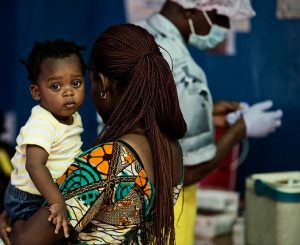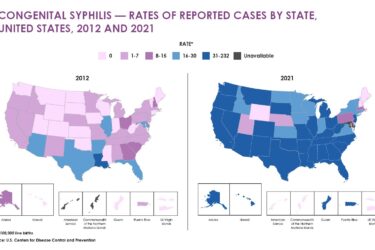
For the fifth time in its history, the World Health Organization declared on July 17, that the Ebola outbreak in the Democratic Republic of Congo was a public health emergency of international concern.
While this doesn’t mean that anyone in the U.S. is at any greater risk of contracting Ebola today than yesterday, it is a political flare to warn the world that Ebola will be spreading around the globe from northeastern DRC, says Helen Branswell with Stat.
Branswell, who has covered infectious disease outbreaks for decades, says that the WHO declaration is aimed at prodding governments around the world, including the U.S., to provide more support in helping the DRC combat the outbreak.
The hope is that, as a result of the emergency declaration, “governments around the world, with their purses and emergency response expertise, will start paying more attention to this long-running crisis,” Branswell wrote.
The risk of the Ebola outbreak reaching the U.S. remains low, but those risks were also low in 2014 during the West Africa Ebola outbreak, reports Vox News’ Julia Belluz. She says the current outbreak is the second largest in history and the first in a war zone. There have been more than 2,500 cases of Ebola, and 1,600 have died.
The U.S. Centers for Disease Control and Prevention withdrew its Ebola experts in the outbreak zone in October 2018 over concerns about political instability and violence. It continued to provide operational support to the DRC and on-the-ground support to neighboring countries. In June 2019, the CDC activated its emergency operations center to provide more operational support to experts in the DRC and nearby countries and the agency expressed support for the WHO declaration.
The ongoing war within DRC has been hampering government efforts to stop the outbreak. When an individual is exposed to Ebola, they need to be quarantined from healthy people to stop the disease from spreading. Fear of quarantines and the government, however, have led people to avoid seeking treatment and in some cases, sparked violence against government Ebola treatment centers and health providers.
Ebola has spread to Goma, a DRC transportation hub with Rwanda and to neighboring Uganda. As in 2014, it is possible for someone with Ebola to get on an airplane and travel to another country.
The WHO’s four previous declared public health emergencies include:
- April 2009 with the outbreak of the H1N1 swine flu pandemic
- May 2014 when polio was surging overseas
- August 2014 when Ebola outbreak in West Africa was growing out of control
- February 2016 when Zika was spreading through the Americas.
For more on how to cover Ebola and potential local story ideas, see our AHCJ tip sheet here.
The world’s second worst Ebola crisis explained. pic.twitter.com/L0L6GLKtC4
— UNICEF (@UNICEF) July 22, 2019






